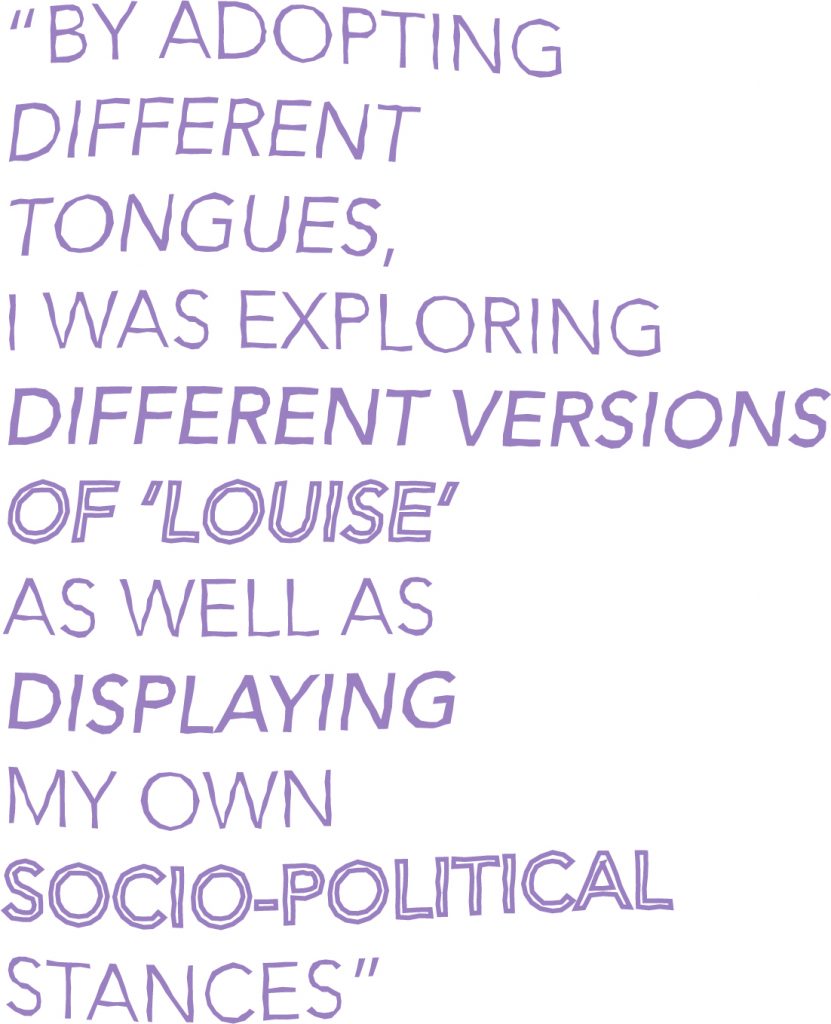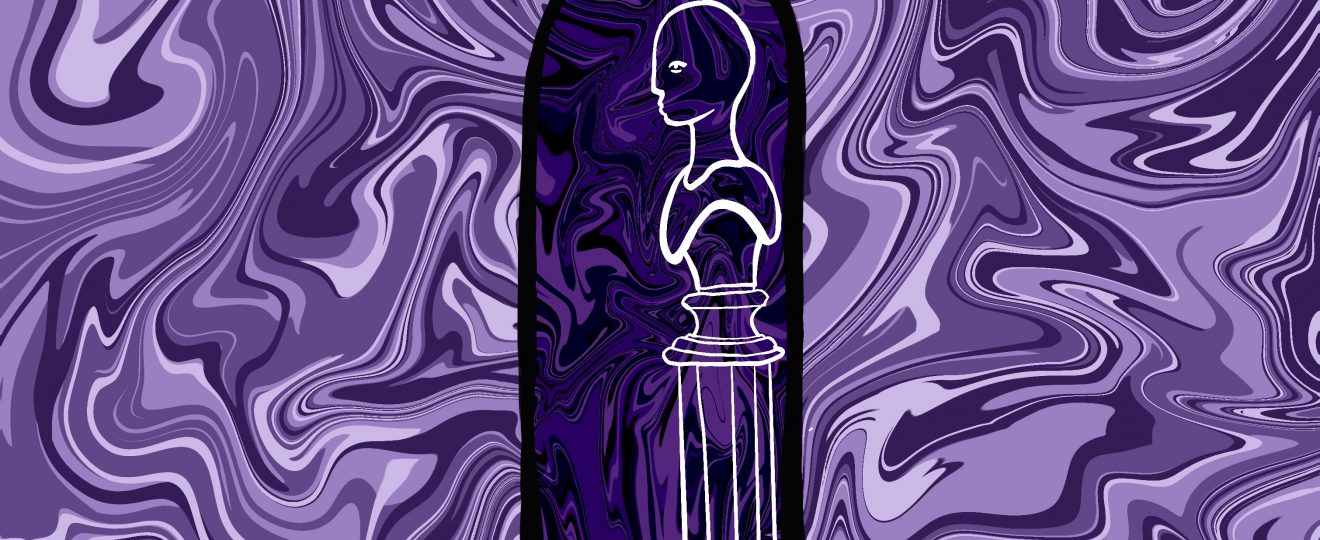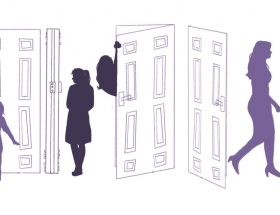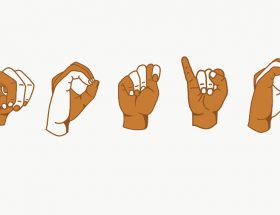Roger Bacon, the 13th Century English philosopher, wrote:
“Knowledge of languages is the doorway to wisdom.”
Languages always fascinated me. I remember my family’s first holiday in the sun when I was 11. The undulating waves of dialects as different conversations swam by; the tannoy announcements at the airport where I heard reps falling effortlessly in and out of their mother tongue; other children playing in the sand, chirping, communicating with these foreign sounds– it was enthralling.
I had been one of those children that grasped English comprehension well. I loved spelling, I loved demarcating verbs from nouns from adjectives. I loved the ‘why’s’ of grammar. Before the Spanish trip, I had inherited my mother’s copy of Angus Maciver’s A First Aid in English in all its dog-eared glory: it became my Bible.
For me, knowledge of languages has opened so many doors, figurative and real. I knew from a young age that I would follow an academic path – one that would lead me to become like those reps and kids I was so jealous of. To flit between different vernaculars as elegantly as they did, as easily as flipping a switch on and off, quickly became my goal.
If Roger Bacon’s understanding of ‘wisdom’ lends itself to traditional concepts of intelligence, then I suppose he was right. In my academic career, knowledge of languages has forged a path for me that has been both supportive and consistent. A path where the flagstones don’t seem to trip me up along the way – a path that, at least up until now, doesn’t seem to end.
And yet, wisdom isn’t exclusively found at the end of a PhD like gold at the end of a rainbow. I have seen, many times, that prefixing one’s name with Dr. doesn’t make a person all-knowing. Wisdom, or sagacity, can also be defined by a ‘quality of having experience,’ and languages have tendered innumerable experiences in my life.
At a time when social anxiety began to get the better of me, my life came to look like a fork in the road. I could just as easily drop out of my course, avoid friendships, move home to family and live a very quiet, sheltered life with my books. The concept was tempting… after all, I’d never need to put myself in an uncomfortable position, I’d simply hibernate until I felt better. But I knew this wasn’t a solution for me.

So, the linguistics-loving 11-year-old in me took the second route in the fork. I hauled myself into the deep end and upped and left every comfort zone and ‘safe space’ I’d started to mould for myself. Languages pulled me through this doorway into a life where I couldn’t seek habitual comfort in physical, social, or linguistic situations, a new life that demanded me to exercise independence and stability.
Situated at what novelists write into their texts as the pivotal point,the rising action, the desire (and academic obligation) to practise speaking secondary language(s) ushered me out of anxiety’s clutches and reaffirmed my love for learning. I became adopted by a different culture, and it has since seeped into my own self-reckoning.
Being able to communicate with others inscribed a kind of social capital within me. I felt powerful for understanding and having the knowledge to engage in conversations that necessitated not only a different language (in linguistic terms), but different social cues, varying colloquialisms and conducts. In this different context, I became more relaxed, more open to new social settings, more accepting of the outdoors, and most importantly, more comfortable with who I was.
By adopting different tongues, I was exploring different versions of ‘Louise’ as well as displaying my own socio-political stances. Rejecting the global language rhetoric that sees, at least to me, pockets of people lazily declaring that “everyone should speak English anyway…” became increasingly important to me as I forged friendships with those from around the globe, as heeding and trying to understand the customs of others made me a more sensitive and unprejudiced friend.
I owe a lot to learning languages, most of all, love. After the breakdown of a difficult and consuming relationship in my early 20’s, I threw myself into academics (and wine) to get through. Beginning to learn new languages from scratch in night class after night class, although not overtly at the time, allowed me to heal. I expounded time and effort into verb conjugations, describing my family and recording myself postulating about favourite films and how I like to swim. Doing so, although tiring, allowed me to reclaim the power I lost and subsequently mourned in this relationship and presented poetic possibilities for my future. I often joked with my friends that infidelity and foolishness were boyish, cultural traits, and so I giggled along as we resolved to look further afield for a match.
Being versed in a secondary language established a connection with a new love; it was the driving force for our initial conversations and came to form the backbone of our relationship. With the power of social media, there’s a slim chance that we would have met anyway, but there’s no doubt that we explored that initial connection because of, rather than in spite of, our differing mother tongues. Communicating with someone that you have come to know so well in different languages is difficult to describe. Both parties become so deliciously attentive to the intonations of the other, we literally hang off of every word. Our conversations are often a melting-pot of different vernaculars, ascribing a multitudinous linguistic culture to our every interaction. There really is, never a dull day.
In my life, knowledge of languages has proffered boundless wisdom. It has forged my career, found my love, saved my sense of spirit, given me insight and sensitivity in the treatment of others, and has made me personally sagacious. Knowledge of languages really has formed the doorway to wisdom in learning who I am… now it’s time to find yours.
Art by Jennifer van der Merwe




